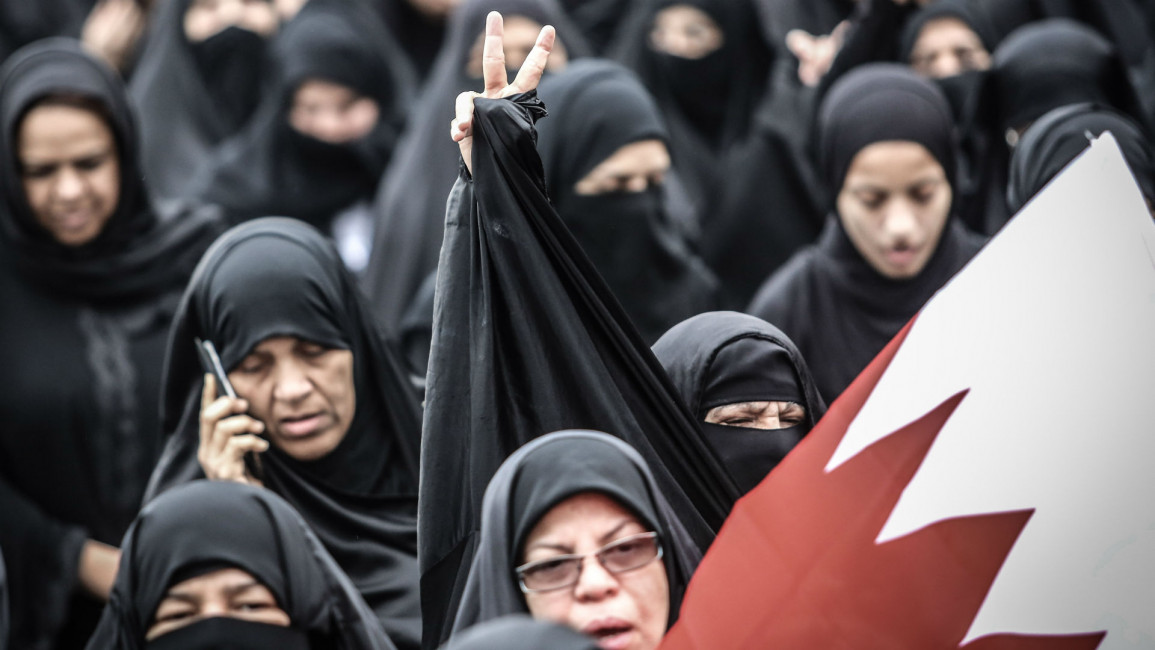Citizenships revoked: Bahrain jails 138 Shia activists for planning Hizballah-like 'terror' group
The detainees received prison terms of three years to life for having tried to build a Bahrain Hizballah, similar to the Shia militia active in Lebanon, said Ahmad al-Hammadi.
Some members had received military training in Lebanon, Iran and Iraq, he claimed in the statement.
Another man was also jailed but his citizenship was not revoked, while 30 others were acquitted, said the statement posted on the prosecution Instagram account.
A judicial source said all the defendants are members of the Shia community in the Sunni-ruled Gulf state.
The source also said that 111 were already in custody while 58 were sentenced in absentia.
Life sentences were handed to 69 people, while 39 were sentenced to ten years in prison.
Twenty-three were sentenced to seven years, one received five years and seven people faced three years in prison.
The mass sentencing was "the largest single incident" since the Bahraini government began revoking nationalities of opponents in 2012, said the opposition Bahrain Institute for Rights and Democracy.
Manama had stripped the nationalities of 990 people since 2012, including 180 this year, it said.
Global rights group Amnesty International condemned the court decision to strip the convicts of their citizenship, saying "this amounts to mass arbitrary denaturalisation".
The prosecutor said that 69 defendants were sentenced to life in jail, 39 to 10 years, 23 to seven years and the rest to between three and five years imprisonment.
Ninety-six of the defendants were also fined 100,000 Bahraini dinars ($265,000) each.
Bahrain's population is majority Shia Muslim, although unofficial estimates that are contested by the government.
Authorities have jailed dozens of high-profile activists and disbanded both religious and secular opposition groups since Shia-led protests demanding political change erupted in 2011.
They have stripped hundreds of those convicted of their citizenship, leaving many stateless.
Since then, authorities have outlawed the main Shia opposition group, Al-Wefaq, which held the largest bloc in parliament before 2011, and the main secular opposition group, Waad.
In January, Bahrain's Supreme Court, whose verdicts are final, upheld a life term for opposition leader Sheikh Ali Salman for allegedly spying for Gulf rival Qatar.
Salman, who headed the Al-Wefaq group, was convicted in November of "communicating with Qatari officials... to overthrow constitutional order", a ruling rights groups have called a travesty.
Salman's aides Ali al-Aswad and Hassan Sultan, who had been sentenced to life in absentia, also lost their right to appeal. Both men are former MPs and currently reside outside of Bahrain.
Qatar has repeatedly denied accusations of conspiring against Bahrain with Salman, as has Iran.
Human rights groups have frequently said cases against activists in Bahrain - men and women, religious and secular - fail to meet the basic standards of fair trials
Follow us on Twitter: @The_NewArab


![Minnesota Tim Walz is working to court Muslim voters. [Getty]](/sites/default/files/styles/image_684x385/public/2169747529.jpeg?h=a5f2f23a&itok=b63Wif2V)




![Debris near Rafic Hariri International Airport [Getty]](/sites/default/files/styles/image_330x185/public/2176162423.jpeg?h=a5f2f23a&itok=MCSK9mkM)
![An Israeli air strike on Jabalia killed teenage journalist Hassan Hamad [Screengrab/X]](/sites/default/files/styles/image_212x120/public/2024-10/hassan%20hamad1.jpg?h=c12e0b96&itok=KstD_5xk)
